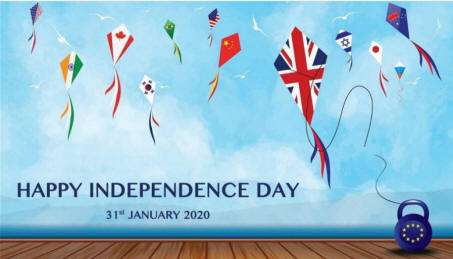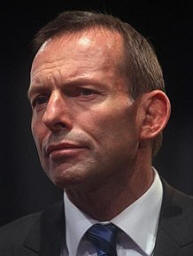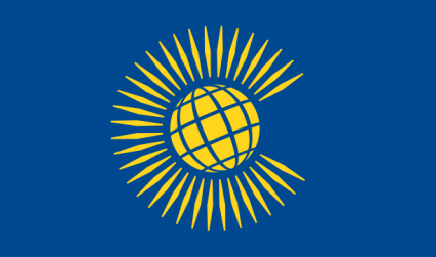An Aussie Viewpoint by Former Australian PM Tony Abbott...
in 2016
and then along came the
CPTPP
in 2023...
   Tony Abbott served as Prime Minister of Australia from 2013 to 2015 |
|
|
"Itís pretty hard for Britainís friends, here in Australia, to make sense of the mess that [was] made of Brexit. The referendum result was perhaps the biggest-ever vote of confidence in the United Kingdom, its past and its future. But the British establishment doesnít seem to share that confidence and instead looks desperate to cut a deal, even if that means staying under the rule of Brussels. Looking at this from abroad, itís baffling: the country that did the most to bring democracy into the modern world might yet throw away the chance to take charge of its own destiny. Letís get one thing straight: a negotiation that youíre not prepared to walk away from is not a negotiation ó itís surrender. Itís all give and no get. When David Cameron tried to renegotiate Britainís EU membership, he was sent packing because Brussels judged (rightly) that heíd never actually back leaving. And since then, Brussels has made no real concessions to Theresa May because it judges (rightly, it seems) that sheís desperate for whatever deal she can get. The EUís palpable desire to punish Britain for leaving vindicates the Brexit project. Its position, now, is that thereís only one Ďdealí on offer, whereby the UK retains all of the burdens of EU membership but with no say in setting the rules. The EU seems to think that Britain will go along with this because itís terrified of no deal. Or, to put it another way, terrified of the prospect of its own independence. But even after two years of fearmongering and vacillation, itís not too late for robust leadership to deliver the Brexit that people voted for. Itís time for Britain to announce what it will do if the EU canít make an acceptable offer by March 29th next year ó and how it would handle no deal. Freed from EU rules, Britain would automatically revert to world trade, using rules agreed by the World Trade Organization. It works pretty well for Australia. So why on earth would it not work just as well for the worldís fifth-largest economy? A world trade Brexit lets Britain set its own rules. It can say, right now, that it will not impose any tariff or quota on European produce and would recognise all EU product standards. That means no border controls for goods coming from Europe to Britain. You donít need to negotiate this: just do it. If Europe knows whatís in its own best interests, it would fully reciprocate in order to maintain entirely free trade and full mutual recognition of standards right across Europe. Next, the UK should declare that Europeans already living there should have the right to remain permanently ó and, of course, become British citizens if they wish. This should be a unilateral offer. Again, you donít need a deal. You donít need Michel Barnierís permission. If Europe knows whatís best for itself, it would likewise allow Britons to stay where they are. Third, there should continue to be free movement of people from Europe into Britain ó but with a few conditions. Only for work, not welfare. And with a foreign workerís tax on the employer, to make sure anyone coming in would not be displacing British workers. Fourth, no Ďdivorce billí whatsoever should be paid to Brussels. The UK government would assume the EUís property and liabilities in Britain, and the EU would assume Britainís share of these in Europe. If Britain was getting its fair share, these would balance out; and if Britain wasnít getting its fair share, itís the EU that should be paying Britain.
|
Third, there should continue to be free movement of people from Europe into Britain ó but with a few conditions. Only for work, not welfare. And with a foreign workerís tax on the employer, to make sure anyone coming in would not be displacing British workers. Fourth, no Ďdivorce billí whatsoever should be paid to Brussels. The UK government would assume the EUís property and liabilities in Britain, and the EU would assume Britainís share of these in Europe. If Britain was getting its fair share, these would balance out; and if Britain wasnít getting its fair share, itís the EU that should be paying Britain. Finally, thereís no need on Britainís part for a
hard border with Ireland. Britain wouldnít be imposing tariffs on
European goods, so thereís no money to collect. The UK has exactly
the same product standards as the Republic, so letís not pretend you
need to check for problems we all know donít exist. Some changes may
be needed but technology allows for smart borders: there was never
any need for a Cold War-style Checkpoint Charlie. Irish citizens, of
course, have the right to live and work in the UK in an agreement
that long predates EU membership. UK officialdom assumes that a deal is vital, which is why so little thought has been put into how Britain might just walk away. Instead, officials have concocted lurid scenarios featuring runs on the pound, gridlock at ports, grounded aircraft, hoarding of medicines and flights of investment. Itís been the pre-referendum Project Fear campaign on steroids. And letís not forget how employment, investment and economic growth ticked up after the referendum. As a former prime minister of Australia and a lifelong friend of your country, I would say this: Britain has nothing to lose except the shackles that the EU imposes on it. After the courage shown by its citizens in the referendum, it would be a tragedy if political leaders go wobbly now. Britainís future has always been global, rather than just with Europe. Like so many of Britainís admirers, I want to see this great country seize this chance and make the most of it." Now what does the
CPTPP mean?
|
|
|
